Photographs: Krishnendu Halder/Reuters Sunita Narain in New Delhi
I travelled to two different cities in two different states last fortnight - Indore and Guwahati. I came back with images identified by common distinctions: piles of garbage and glitzy new shopping malls. Is this our vision of urban development?
There is no question that cities are imploding; growth is happening faster than we ever imagined. Construction is booming and expansion is gobbling agricultural land. But the quality of life is no better. In most parts there is traffic, dust, air pollution and most of all the chaos of unplanned growth.
Road expansion is eating up lines of shady trees - in Guwahati I saw the most majestic trees hacked down mercilessly.
...
Does development mean traffic, dust, garbage?
Image: The city's lungs are going, and so are its sponges.Photographs: Amit Dave/Reuters
The city's lungs are going, and so are its sponges, as water bodies are making way for buildings. In Indore its residents will tell you that the names of the colonies are the names of the lakes they are built on.
In Guwahati, the airport has been built by killing the grand Deepor beel. First a road was built (obviously without culverts to channelise the water), then, as the water body died, it was filled to undertake new construction. This year, as always, Guwahati airport was flooded and air traffic disrupted.
The two cities are different ecosystems, so they should have had different water and waste issues.
...
Does development mean traffic, dust, garbage?
Image: Guwahati and Indore are facing acute water stress.Photographs: Amit Dave/Reuters
One is located in the relatively dry Malwa plateau and the other in the high-rainfall region on the banks of the mighty Brahmaputra. But both cities have acute water stress, even as rain leads to swamping of cities, disrupting life and destroying property. Both cities have no water culture. Both are drowning in their waste.
Indore, because of its location, had a rich tradition of lakes. Rainwater was harvested and stored in structures, which recharged groundwater. Then, in 1977, the city brought Narmada water from some 110 km to the city. Indore should have had enough to drink and to swim. But 35 years later, the water has still not reached all distribution pipelines.
...
Does development mean traffic, dust, garbage?
Image: Indian cities are witnessing booming construction, but basic services are lacking.Photographs: Amit Dave/Reuters
Over 50 per cent of the 172 million litres per day of water it sources is lost in distribution, which means there are far more costs but far less water to supply. The city water utility has no money to repair and extend its water system. It spends all it has and more just on the electricity costs of bringing the water in. Politicians are vying with each other to bring in water from the Maheshwar dam.
The recent jal samadhi by the Maheshwar dam-displaced has met with enormous anger from Indore's power elite. They say they need the dam's water at all costs.
...
Does development mean traffic, dust, garbage?
Image: The same power elite never demand systems to deal with the sewage they flush out of their homes.Photographs: Jayanta Dey/Reuters
They do not care if the people whose land has been submerged by the dam have received compensation or been resettled. The same power elite never demand systems to deal with the sewage they flush out of their homes. In Indore, the sewage system was constructed in 1936 at the time of the Holkars.
Independent Indore has added to it insignificantly. The bulk of the sewage pours into its rivers, Khan and Saraswati, and Piliyakhal Nullah, untreated. It forgets that the Khan pollutes the Kshipra; the main water source of its neighbour, Ujjain. This is when both cities have options to do things differently.
...
Does development mean traffic, dust, garbage?
Image: Planners should give a thought to quality of life.Photographs: Amit Dave/Reuters
They are yet to build all their homes, roads and water and sewage systems. They can execute a plan, which allows them to modernise but with quality of life intact and even better. This requires not to want to grow in the way Delhi, Mumbai or any other "old-growth" city has.
For instance, they should not repeat the mistake of allowing fleets of cars to take over their roads. Indore was enlightened in planning for a bus-based future. Some years ago it invested in new buses, rationalised routes, created systems for efficient operation and put GPS in place to track and inform customers. Now the cost of bus fuel is up, fares have not been revised and buses are losers.
...
Does development mean traffic, dust, garbage?
Image: Many Indian cities lack footpaths.Photographs: Danish Siddiqui/Reuters
Still the majority of the city population rides or walks, even though the city's footpaths are long gone. Indore is now building a bus rapid transit corridor. It has many foreign and Indian consultants to design the system, but the people of Indore have no idea what is being proposed and why BRT is important. So they already hate it.
Guwahati's footpaths are gone as well, taken over by mounds of garbage. The city has taken the route of its bigger cousins. It has put the task of garbage disposal out to a concessionaire, who, it hopes, will sweep the city clean. It does not.
...
Does development mean traffic, dust, garbage?
Image: In the end Indore and Guwahati will be the creations of their people.Photographs: Vivek Prakash/Reuters
Instead, Guwahati could collect, segregate and compost garbage at the household level. It could reserve areas in colonies for environmental services. This way it would not have to first collect and then transport the waste. It would not have to live in filth. In the end Indore and Guwahati will be the creations of their people.
The only question is whether they will be dreams or nightmares.
The writer is at the Centre for Science and Environment

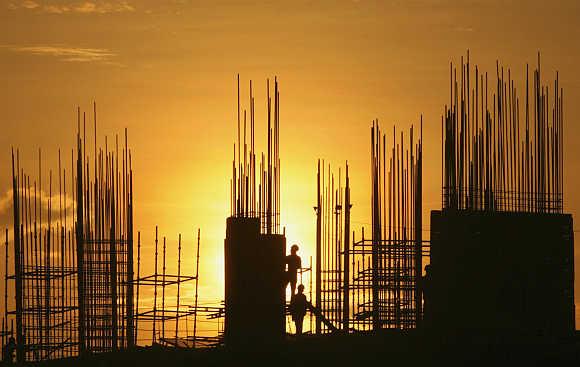
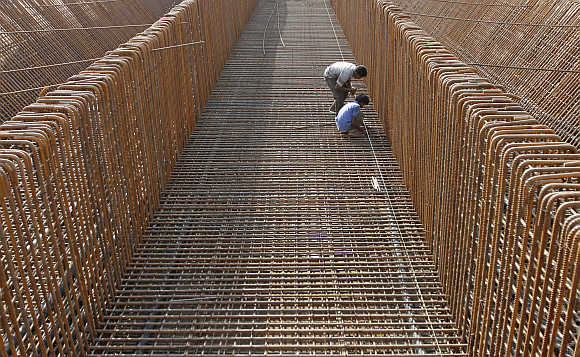
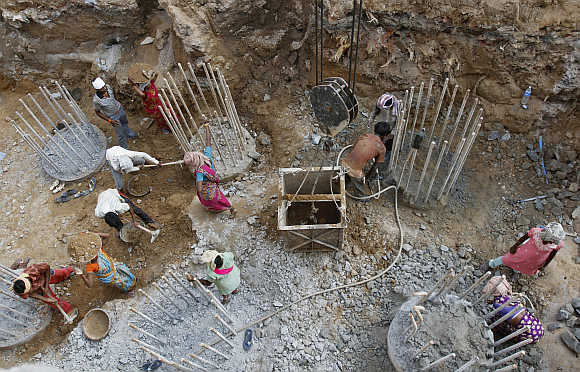
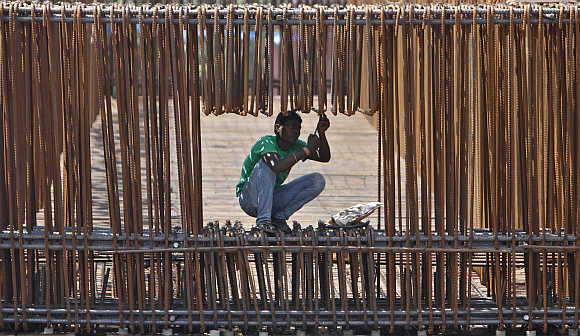
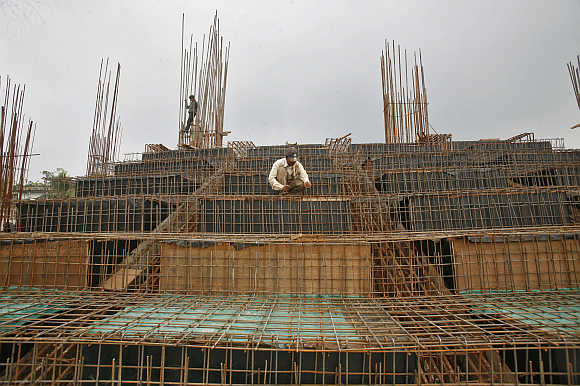
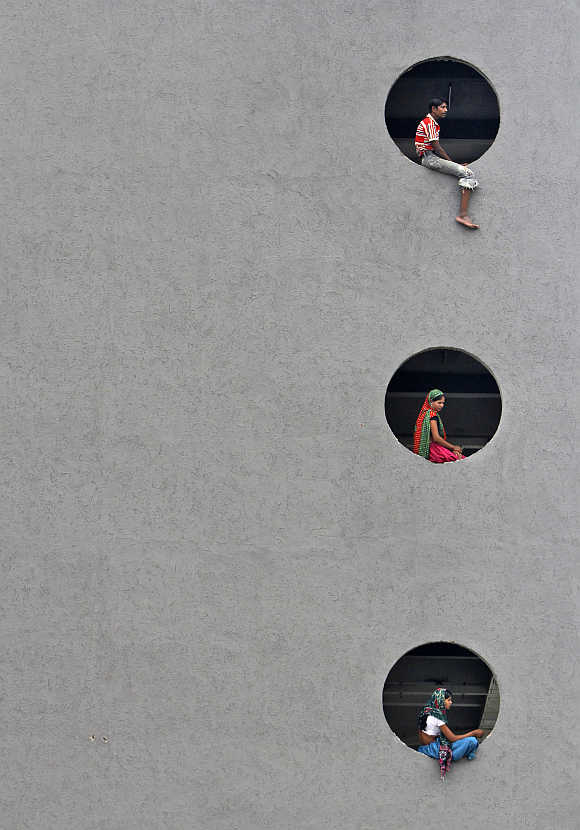
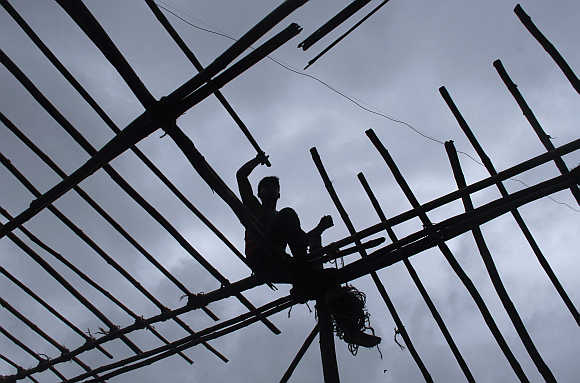
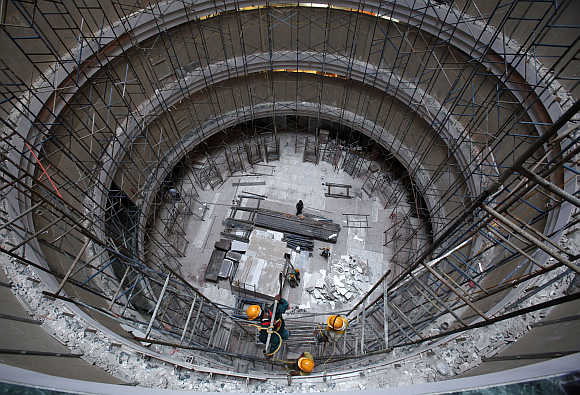

article